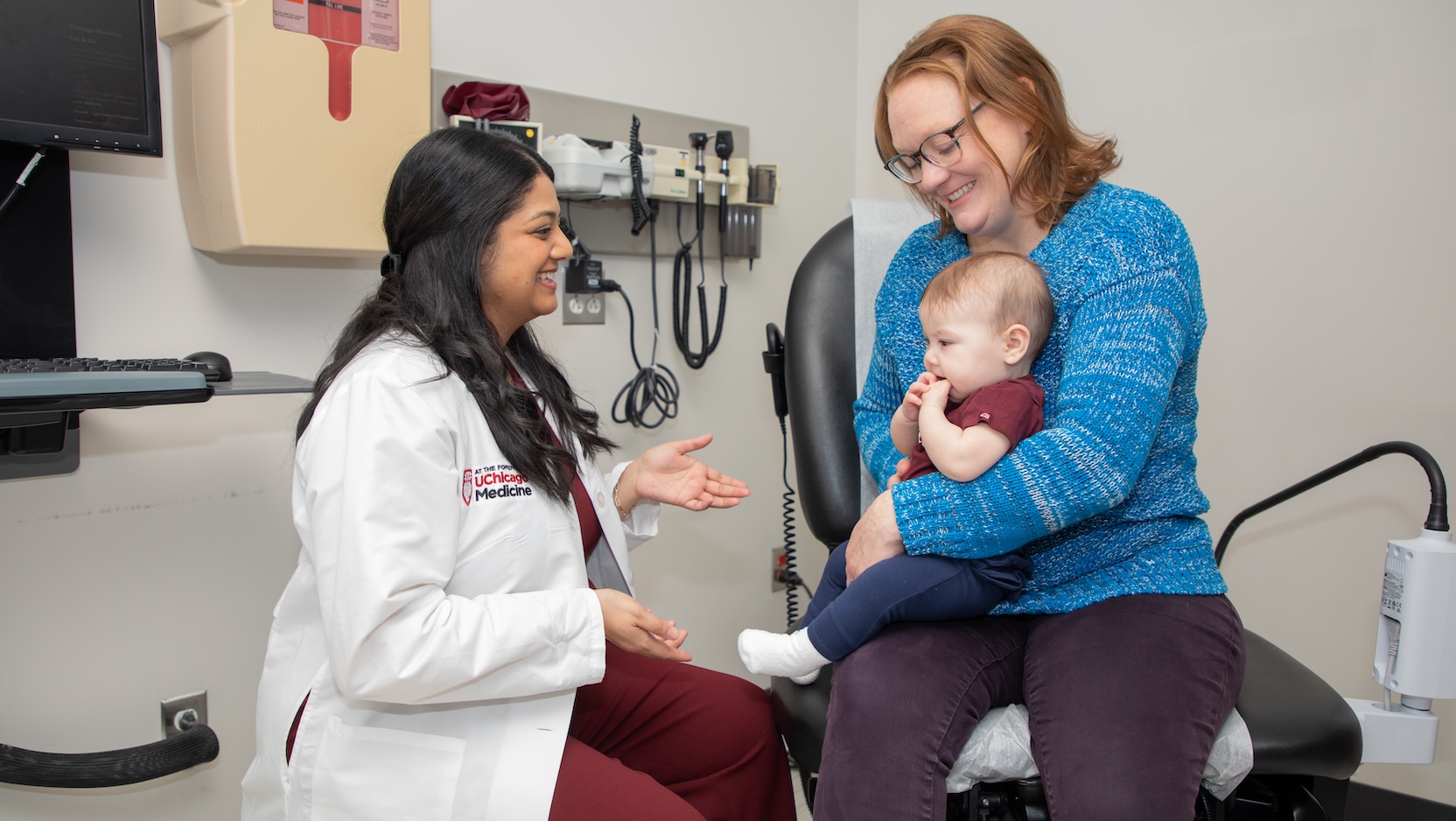Surgery for Reproductive Tract Anomalies

About one in 20 babies born with a female reproductive system has a congenital anomaly in their vagina, cervix, uterus or ovaries. This means their organs developed differently before birth. While some congenital anomalies do not cause symptoms or require treatment, others can be serious and require expert care.
At the University of Chicago Medicine Comer Children’s Hospital, our pediatric and adolescent gynecologists work as part of a specialized team to treat all types of congenital anomalies. If your child, preteen or teen has a reproductive tract anomaly, we’re here to provide education, care and support.
With locations across Chicago and the western and southwestern suburbs, we aim to provide more convenient and flexible appointment scheduling options for your family.
Connect with a Pediatric and Adolescent Gynecology Specialist
Schedule an OB/GYN Appointment Online
Refer a Patient: Call 773-702-6118
Or, call us at 773-702-6118 to check appointment availability at your preferred location.
Congenital Anomalies We Treat
Some common congenital anomalies we routinely treat in kids include:
- Mullerian anomalies, which occur when the two structures that come together to form the uterus during fetal development do not fuse properly. This can cause problems such as:
- Unicornuate uterus, when only half the uterus develops
- Bicornuate uterus, when the upper part of the uterus is divided into two segments
- Septate uterus, when an extra wall of tissue develops and divides the uterus
- Uterine didelphys, when the baby develops two uteruses instead of one
- Uterine agenesis (absent uterus), when the uterus does not develop
- Vaginal agenesis (absent vagina), when the vagina does not fully develop
- Vaginal septum, when the vagina is divided by a wall of tissue either horizontally (transverse vaginal septum) or vertically (longitudinal vaginal septum)
- Imperforate hymen, when tissue fully covers the opening to the vagina (hymen), which blocks the flow of secretions and menstrual blood
- Microperforate hymen, when tissue partially covers the hymen
- Septate hymen, when the hymen has an extra band of tissue down the middle
- Labial adhesions, when the labia minora (inner lips of the vulva) become fused or joined together
- Labial hypertrophy, when the labia are enlarged
- Labial hypoplasia, when the labia are not fully developed
Pelvic Surgery in Children and Teens
Without surgery, some types of congenital anomalies of the female reproductive system can affect your child’s or teen’s menstrual periods, fertility and quality of life. At Comer Children’s, we collaborate with your child’s pediatrician as well as specialists in urogynecology, pediatric urology, pediatric gastroenterology and pediatric surgery to develop a personalized treatment plan for your child. We also work closely with other specialists to repair congenital colorectal anomalies.
Our team has specialized training and expertise to repair even the most complex anorectal and genitourinary anomalies in kids of all ages. We can also care for your child, preteen or teen if they have had previous surgery to repair their anomaly.
Meet Our Pediatric and Adolescent Gynecology Team
Our team includes board-certified physicians who completed fellowship training in pediatric and adolescent gynecology or complex family planning. We also coordinate with a wide range of other pediatric and adult subspecialists to optimize care based on each individual’s unique health needs.
Schedule an OB/GYN appointment online. Or, call us at 773-702-6118 to refer a patient or ask about additional appointment availability at your preferred location.



